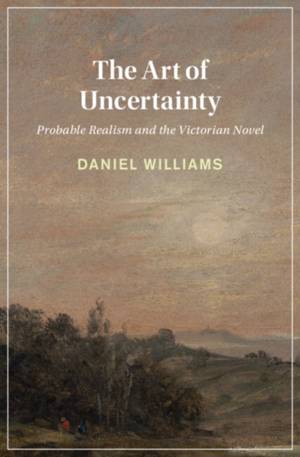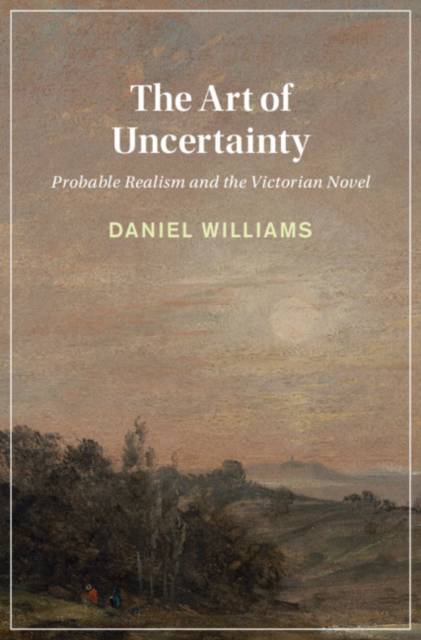
- Afhalen na 1 uur in een winkel met voorraad
- Gratis thuislevering in België vanaf € 30
- Ruim aanbod met 7 miljoen producten
- Afhalen na 1 uur in een winkel met voorraad
- Gratis thuislevering in België vanaf € 30
- Ruim aanbod met 7 miljoen producten
Zoeken
€ 158,95
+ 317 punten
Omschrijving
The Victorian novel developed unique forms of reasoning under uncertainty-of thinking, judging, and acting in the face of partial knowledge and unclear outcome. George Eliot, Wilkie Collins, William Thackeray, Thomas Hardy, and later Joseph Conrad drew on science, mathematics, philosophy, and the law to articulate a phenomenology of uncertainty against emergent models of prediction and decision-making. In imaginative explorations of unsure reasoning, hesitant judgment, and makeshift action, these novelists cultivated distinctive responses to uncertainty as intellectual concern and cultural disposition, participating in the knowledge work of an era shaped by numerical approaches to the future. Reading for uncertainty yields a rich account of the dynamics of thinking and acting, a fresh understanding of realism as a genre of the probable, and a vision of literary-critical judgment as provisional and open-ended. Daniel Williams spotlights the value of literary art in a present marked by models and technologies of prediction.
Specificaties
Betrokkenen
- Auteur(s):
- Uitgeverij:
Inhoud
- Aantal bladzijden:
- 346
- Taal:
- Engels
- Reeks:
Eigenschappen
- Productcode (EAN):
- 9781009436113
- Verschijningsdatum:
- 7/03/2024
- Uitvoering:
- Hardcover
- Formaat:
- Genaaid
- Afmetingen:
- 152 mm x 229 mm
- Gewicht:
- 630 g

Alleen bij Standaard Boekhandel
+ 317 punten op je klantenkaart van Standaard Boekhandel
Beoordelingen
We publiceren alleen reviews die voldoen aan de voorwaarden voor reviews. Bekijk onze voorwaarden voor reviews.











